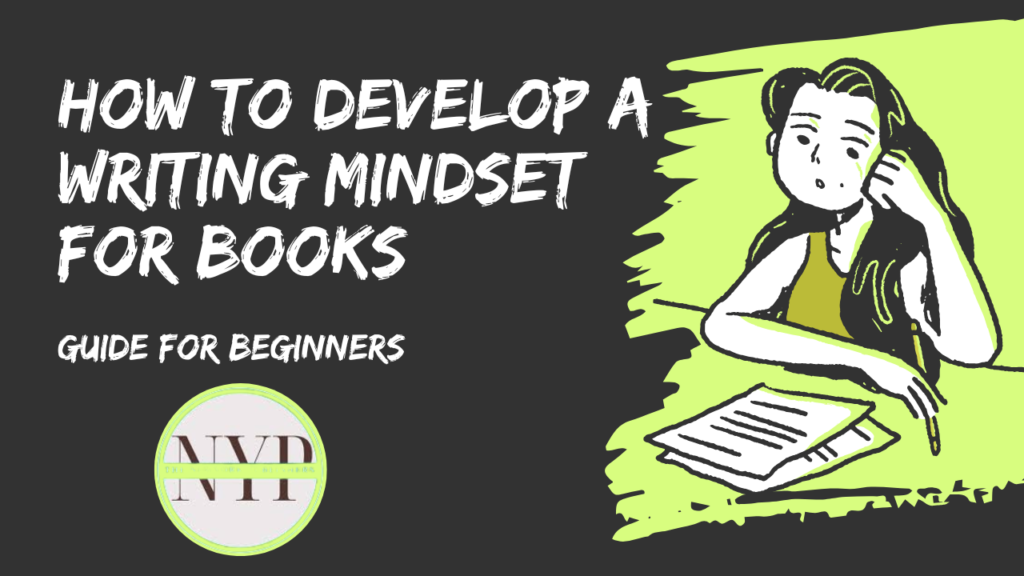
Writing a book can seem like a monumental task, especially for beginners. Whether you’re writing fiction, non-fiction, or anything in between, the process of getting your ideas down on paper and turning them into a finished book can be overwhelming. In this guide The New York Publishers will walk you through how to start writing a book, step-by-step, providing practical advice and actionable insights to help you begin your writing journey with confidence.
How to Start Writing a Book

Starting the process of writing a book is as much about mindset as it is about technique. The key is to break the task into manageable steps that make it less daunting. It’s easy to become paralyzed by the idea of writing an entire book, but when you focus on the small steps, it becomes much more achievable. The journey to writing a book starts long before you write the first sentence. It begins with preparing yourself mentally, setting up the right environment, and honing your craft.
Note: You don’t have much time? Get a Books Writing Service
Learn From the Best
One of the most valuable strategies for any writer, especially beginners, is learning from those who have already successfully navigated the writing process. Successful authors often share their experiences and offer tips on how they got started, what kept them going, and how they overcame common obstacles. By studying their techniques, you can discover new methods that resonate with you and avoid pitfalls they may have encountered. There is no need to reinvent the wheel much can be gained from the knowledge of others.
19 Tips and Steps to Start Writing a Book

There are several essential steps to take before you start writing your book. These steps will guide you through the early stages of the writing process and ensure that you are on the right track. Let’s take a closer look at each one.
1. Brainstorm for Book Ideas
The first step in writing any book is coming up with an idea. Don’t rush this part. Take your time to think about what excites you. The best book ideas often come from personal passions, unresolved questions, or experiences you feel compelled to share. Keep a notebook or digital document handy to jot down ideas as they come to you. Sometimes inspiration strikes in the most unexpected places, so be ready to capture it when it happens.
2. Establish a Dedicated Writing Space
Creating the right environment for writing is essential. A dedicated writing space allows you to focus and immerse yourself in the task at hand. Whether it’s a quiet corner of your home or a local coffee shop, choose a place where you can consistently write without distractions. Ensure that the space is comfortable, well-lit, and free from interruptions. A space that feels inspiring can help boost your productivity and creativity.
3. Sharpen Your Focus
To be successful at writing a book, you need to cultivate the ability to concentrate deeply. Writing requires mental clarity and sustained attention, both of which can be improved through practice. Minimize distractions by turning off notifications, setting boundaries with others, and committing to focused writing sessions. Consider using techniques like time blocking or the Pomodoro Technique to help maintain focus and boost efficiency.
4. Assemble Your Writing Tools
Having the right tools for writing is essential, though the specific tools may vary depending on your personal preferences. Some writers prefer the tactile experience of pen and paper, while others rely on digital tools like word processors and specialized writing software. Explore different options to see what works best for you. Additionally, having a reliable grammar and spell checker can help streamline the writing process, allowing you to focus on crafting the content itself.
5. Develop a Writing and Reading Habit

Writing a book is a long-term commitment, and consistency is key to success. Establishing a writing habit is the foundation of completing your book. Set aside time each day or week to write, and make it a non-negotiable part of your routine. In addition to writing, developing a reading habit can help improve your writing skills. Reading widely will expose you to different styles and genres, enriching your vocabulary and understanding of language.
6. Settle on a Great Idea
Once you’ve brainstormed several potential ideas, it’s time to decide which one to pursue. A great idea is one that you’re passionate about, but also one that has the potential to captivate your audience. Consider the marketability of your idea, as well as its depth and uniqueness. Take some time to reflect on what sets your idea apart from others and why it is worth writing about.
7. Distill Your Idea Into a Single Sentence
Condensing your idea into a single, clear sentence will help you focus and clarify your vision for the book. This sentence will serve as your book’s guiding principle, a touchstone to refer to whenever you feel uncertain or distracted. It can also serve as the basis for writing a compelling book description or elevator pitch later on.
8. Create Your Outline
An outline is a roadmap for your book, helping you organize your thoughts and plot points in a logical order. Whether you choose to create a detailed chapter-by-chapter outline or a more general framework, this step is crucial to keep you on track throughout the writing process. Your outline will evolve as you write, but it provides a helpful starting point.
9. Conduct Your Research
Depending on the genre of your book, research may be a vital part of the process. Whether you’re writing historical fiction, a biography, or a technical manual, gathering accurate information will enhance the credibility of your work. Make sure to take thorough notes and keep track of your sources for easy reference later.
10. Break Your Project into Small Pieces

Writing a book can feel overwhelming when viewed as a whole, but breaking it into smaller tasks makes it much more manageable. Focus on completing one chapter, section, or even paragraph at a time. The small wins will keep you motivated and help you make steady progress towards finishing your book.
11. Determine Your Writing Schedule and Deadline
Setting a writing schedule and self-imposed deadlines will help keep you accountable. Decide how many words or pages you want to write each day or week, and stick to that goal. Deadlines will create a sense of urgency and help you avoid procrastination. Make sure your writing schedule is realistic and fits with your other responsibilities.
12. Embrace Procrastination
While procrastination is often seen as a negative habit, embracing it can actually be productive. Sometimes, taking a break from writing allows your mind to process ideas more deeply. Use this time to read, daydream, or simply step away from the project. You’ll often return to your writing with renewed energy and inspiration.
13. Make a Commitment to Write
Committing to the process of writing a book is essential. There will be days when writing feels like an uphill battle, but it’s important to push through. Make a vow to yourself that no matter the obstacles, you will continue writing. Your commitment will be the driving force that keeps you going when times get tough.
14. Start Writing Your Book
Once you’ve done all the preparation work, it’s time to actually write. Begin by putting your thoughts and ideas onto paper, without worrying too much about perfection. The first draft is about getting the story or information down, and you can refine it later. Just start writing and let your creativity flow.
15. Keep Writing, Worry About Quality Later

It’s easy to become obsessed with writing perfectly from the start, but this mindset can hinder your progress. Instead, focus on writing consistently and completing your first draft. The quality of your work can be improved during the editing and revision process. Write freely and don’t stress over every word.
16. Finish Your First Draft
Once you’ve written your first draft, take a moment to celebrate. Completing the first draft is a major milestone in the writing process. It’s easy to get caught up in perfectionism, but remember that this is just the beginning. Your first draft is a raw version of your story, ready for revision and refinement.
17. Edit, And Proofread
The next step is Editing, and Proofreading your work. This is where you can shape your rough draft into something polished and cohesive. Begin by focusing on the larger elements, like plot structure, pacing, and character development. Then, fine-tune the details, such as grammar, punctuation, and sentence structure. Consider seeking feedback from others during this phase.
18. Write Your Second Draft
Your second draft is your opportunity to refine your manuscript further. Incorporate the changes from your revisions, making sure the narrative flows smoothly and that there are no loose ends. A second draft allows you to polish your work and elevate it to a higher standard.
19. Publish Your Book
Once you’re satisfied with your manuscript, it’s time to think about publication. Whether you choose traditional publishing or self-publishing, there are numerous avenues to get your book into the world. Research your options carefully to find the best fit for your work and your goals as an author. You can also consider THE NEW YORK PUBLISHERS your publishing partner
Writing Your Book Today

There is no time like the present to start writing your book. The process may seem daunting, but by taking small, consistent steps, you can transform your ideas into a completed manuscript. Whether you write a little each day or dedicate chunks of time to the project, every bit of progress brings you closer to your goal.
Key Insights
- Starting is often the hardest part of writing a book, but it’s important to begin somewhere, no matter how small the step.
- Developing a writing habit and sticking to a routine will set you up for long-term success.
- A clear idea, an organized approach, and a commitment to the process are essential to completing your book.
- Writing is a marathon, not a sprint. Take your time, enjoy the journey, and allow yourself to revise and refine your work.


